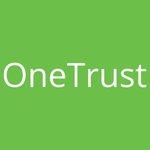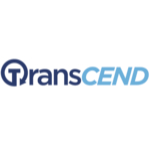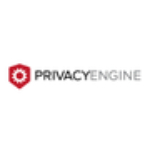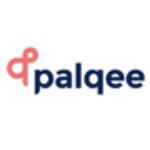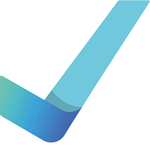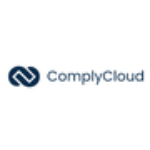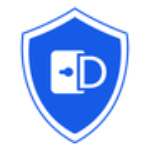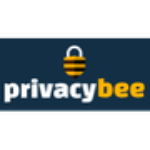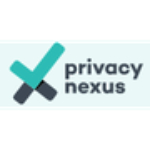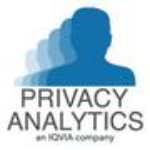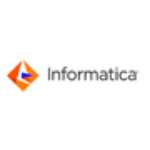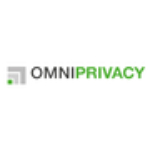TechnologyCounter provides genuine, unbiased real user reviews to help buyers make informed decisions. We may earn a referral fee when you purchase through our links, at no extra cost to you.
List of 15 Best Data Privacy Management Software
Showing 1 - 15 of 19 productsMineOS is a operating system designed specifically for Minecraft servers. With its user-friendly interface and powerful features, MineOS simplifies the management of Minecraft servers, allowing users to easily customize, monitor, and protect their ga...Read MineOS Reviews
OneTrust is a leading platform for all your privacy, security, and trust needs. With its unique interface, OneTrust streamlines the complex world of privacy compliance and data management, allowing organizations to easily navigate the constantly evol...Read OneTrust Reviews
Transcend is a software that takes productivity and organization to new heights. With its innovative features and user-friendly interface, Transcend allows you to streamline your tasks and maximize your efficiency. From project management to data ana...Read Transcend Reviews
Osano is a tool for businesses looking to take control of their data management and privacy compliance. With its intuitive features and user-friendly interface, Osano streamlines the process of data protection and helps businesses stay up-to-date wit...Read Osano Reviews
PrivacyEngine is a software designed to safeguard your personal information and digital identity. With robust security measures encryption technology, PrivacyEngine ensures your online privacy and protects you from cyber threats. Say goodbye to worri...Read PrivacyEngine Reviews
Securiti is a security software designed to protect and secure your sensitive data. With its advanced features and powerful encryption technology, Securiti ensures the confidentiality and integrity of your information. Trust Securiti to safeguard you...Read Securiti Reviews
Palqee is a solution for all your business needs. With its intuitive interface features, Palqee streamlines your operations and helps you achieve maximum efficiency. From project management to customer relations, Palqee revolutionizes the way you do...Read Palqee Reviews
At ECOMPLY, we understand the importance of efficient and streamlined compliance management. Our software is designed to simplify the process for businesses of all sizes. With user-friendly features and customizable options, ECOMPLY is the solution t...Read ECOMPLY Reviews
ComplyCloud, a powerful cloud-based compliance software designed to streamline your organizations compliance processes and ensure adherence to industry regulations. With its intuitive interface features, ComplyCloud helps businesses achieve complianc...Read ComplyCloud Reviews
DPOrganizer is a versatile is a software designed to streamline the management of personal data in compliance with privacy regulations. With its user-friendly interface and robust features, DPOrganizer empowers businesses of all sizes to effectively...Read DPOrganizer Reviews
Privacy Bee is a solution for protecting your online privacy and data security. Our reliable and user-friendly software offers advanced features to safeguard your personal information from online threats. With Privacy Bee, you can browse the web with...Read Privacy Bee Reviews
Privacy Nexus the all-in-one solution for managing data privacy compliance. With its advanced features and easy-to-use interface, Privacy Nexus streamlines the process of ensuring information security and compliance with regulations, giving business...Read Privacy Nexus Reviews
Privacy Analytics is a leading software company that specializes in de-identification and anonymization solutions for sensitive data. Their innovative technology helps organizations protect the privacy of individuals while still allowing for valuable...Read Privacy Analytics Reviews
Informatica Data Privacy is a solution for protecting sensitive data and maintaining data privacy. With advanced features security measures, Informatica enables organizations to secure their sensitive information and comply with data privacy regulati...Read Informatica Data Privacy Reviews
OMNIPRIVACY is a solution for protecting your online privacy. With its advanced features and robust security measures, OMNIPRIVACY ensures that your sensitive information remains confidential and inaccessible to unauthorized parties. Experience true...Read OMNIPRIVACY Reviews
- What Is Data Privacy Management Software?
- Top Reasons Why Businesses Need Data Privacy Management Software?
- What Are the Top Key Features of Data Privacy Management Software?
- What Are the Top Benefits of Data Privacy Management Software?
- What Are the Steps to Choose the Right Data Privacy Management Software?
- What Are the Types of Data Privacy Management Software for Different Industries?
- What Are the Technology Trends for Best Data Privacy Management Software?
- What Are the Deployment Options for Data Privacy Management Software?
What Is Data Privacy Management Software?
Data privacy management software refers to a category of computer software designed to assist firms in safeguarding the personal information of their clientele. This encompasses several types of data, such as health care data, banking data, financial records, and customer data.
The best data privacy management software facilitates the safeguarding of data from unauthorized access, a critical requirement for enterprises to maintain compliance with legislation at the local, state, and federal levels. The data privacy management tools incorporates functionalities such as data source identification, data risk assessment, and data privacy policy implementation.
Furthermore, it aids organizations in the surveillance of data access and identification of any instances of unauthorized access or data misuse. In addition, the software has the capability to monitor data privacy performance in real-time, along with an auditing system to address any data privacy concerns that may arise.
The best privacy management software enables corporate entities to ensure regulatory compliance and safeguard the privacy of their consumers' data.
Top Reasons Why Businesses Need Data Privacy Management Software?
1. Maintain regulatory compliance: Data privacy management software aids organizations in maintaining regulatory compliance and safeguarding sensitive consumer data.
2. Prevent data breaches: By employing data privacy and security technologies, firms can adopt a proactive approach in mitigating the occurrence of data breaches.
3. Suppress malicious activities: The utilization of the best privacy management software enables the identification and mitigation of malevolent activity within a network.
4. Protect customer data: The best data privacy management software is designed to safeguard client data by preventing illegal access.
5. Monitor access: Data privacy management software has the capability to effectively monitor and regulate the access to consumer data.
6. Enable data discovery: Data privacy management platform facilitates the process of identifying and retrieving confidential client data, hence streamlining this task for enterprises.
7. Detect and prevent fraud: The best data privacy management software has the capability to identify and analyze potentially suspicious behavior, so serving as a means to mitigate the risk of fraudulent activities.
8. Increase data security: The utilization of the best privacy management software has the potential to enhance data security measures and mitigate the risk of data loss.
9. Improve data governance: The utilization of data privacy management platform has the potential to enhance data governance processes within businesses.
10. Track usage: The implementation of client data tracking mechanisms can aid firms in maintaining compliance with privacy requirements.
11. Secure data storage: The utilization of data privacy management software has the potential to assist firms in safeguarding their data storage and backup processes.
12. Facilitate secure data sharing: The utilization of data privacy management software has the potential to enhance the secure exchange of data among different companies.
13. Streamline audits: The utilization of data privacy management platform can facilitate the optimization of the data compliance auditing process within enterprises.
14. Risk mitigation: The utilization of the best privacy management software has the potential to assist businesses in the reduction of data breaches and other cyber security issues.
15. Data insights: The best data privacy management software has the potential to offer significant data insights to enterprises.
What Are the Top Key Features of Data Privacy Management Software?
1. Data Encryption: Data privacy management software offers encryption functionalities that can be utilized to encrypt data stored in cloud or other databases, thereby safeguarding it against unauthorized access.
2. Data Access Control: Access controls are employed as a means of guaranteeing that solely individuals with proper authorization are able to gain access to the data. The aforementioned software for data privacy management enables administrators to establish varying degrees of access and oversee access levels for individual users.
3. Data Audit and Reporting: The best data privacy management software monitors and records all user actions within the system, establishing an audit trail that aids in the identification of any instances of unauthorized access.
Additionally, it offers comprehensive reports pertaining to diverse information, encompassing usage trends, performance metrics, and adherence to data protection regulations.
4. Activity Logging: The practice of activity logging facilitates the monitoring and tracing of data access activities, encompassing any modifications made to databases.
5. User Access Control List Management: The data privacy management platform maintains a record of user access control lists in order to mitigate the risk of inadvertent or illegal access to confidential information by those lacking proper authorization.
6. Data Retention Policies: Data retention policies are put in place to guarantee that data is kept for the appropriate duration as dictated by legal and policy obligations. The software has the capability to establish automated deletion criteria for files or data that surpass a specific age.
7. Data Redaction: The process of data redaction enables an administrator to conceal specific sensitive information within a database, such as credit card numbers, with the purpose of safeguarding it from unauthorized access.
8. Data Masking: The process of concealing sensitive information such as IP addresses, Social Security numbers, and emails is an essential aspect of the best privacy management software.
9. Data Usage Policies: Administrators possess the authority to establish policies that enable the monitoring and regulation of data utilization within the organizational framework.
10. Data Backup and Recovery: The implementation of data backup and disaster recovery functionalities is of utmost importance for enterprises as they provide the prompt restoration of data in situations where data loss or corruption occurs.
What Are the Top Benefits of Data Privacy Management Software?
1. Improved Data Security: The data privacy management tools offers comprehensive security measures that effectively safeguard sensitive data against unauthorized access.
2. Regulatory Compliance: This process guarantees that firms adhere to pertinent data privacy requirements and standards, including the General Data Protection Regulation (GDPR), the Health Insurance Portability and Accountability Act (HIPAA), and the California Consumer Privacy Act (CCPA).
3. Risk Management: Assisting enterprises in the identification of potential data privacy risks and the subsequent development of policies to effectively manage such risks.
4. Improved Visibility: The implementation of this solution offers more transparency about data privacy protocols and affords users increased authority over data accessibility and utilization.
5. Automation: The best data privacy management software automates various common processes related to data privacy, including but not limited to user access control, data mapping, and data erasure.
6. Data Tracking: The data privacy management tools facilitate the ability of enterprises to effectively monitor and track modifications in their data privacy protocols.
7. Data Governance: Assisting firms in the implementation of data privacy policies and processes, as well as ensuring their adherence, becomes beneficial.
8. Cost Savings: The implementation of this technology decreases the level of manual labor needed to adhere to data privacy standards, resulting in potential cost reductions.
What Are the Steps to Choose the Right Data Privacy Management Software?
1. Evaluate your organization's data privacy needs: The initial step involves enumerating the distinct data privacy legislation and requirements, namely the General Data Protection Regulation (GDPR), the California Consumer Privacy Act (CCPA), the Sarbanes-Oxley Act (SOX), and the Health Insurance Portability and Accountability Act (HIPAA), which necessitate compliance by your firm.
2. Research available privacy management software: Evaluate the characteristics and functionalities of the several options available in the market. In order to ascertain the most suitable option for meeting an organization's needs, it is important to undertake a comparative analysis of the strengths and limitations associated with each product.
3. Identify desired features and functionalities: Determine the essential features and functions required to fulfill your organization's data privacy obligations.
4. Calculate the total cost of ownership: It is important to take into account not only the initial acquisition cost, but also the expenses related to the implementation, maintenance, and ongoing operations. Additionally, it is important to take into account the potential future scalability requirements.
5. Evaluate user feedback: Engage in discussions with present users of the privacy management software to ascertain their perspectives on the software and its efficacy in fulfilling organizational requirements.
6. Make a choice: In order to effectively address an organization's data privacy requirements, it is essential to carefully evaluate and choose software that aligns with these objectives, while also considering factors such as cost-effectiveness and favorable user feedback.
What Are the Types of Data Privacy Management Software for Different Industries?
Data privacy management software for various businesses can be broadly classified into four distinct areas.
1. Compliance Management Software: This software facilitates the monitoring and administration of compliance obligations, encompassing industry-specific or governmental rules. Illustrative instances encompass solutions for data encryption, solutions for cloud security, and rules for data protection.
2. Data Governance Software: Data governance software is specifically developed to assist organizations in attaining their objectives related to data privacy. This assists in the establishment of data privacy rules, the identification of data owners, and the formulation of risk management strategies.
3. Data Loss Prevention Software: Data Loss Prevention (DLP) Software is a crucial tool for enterprises to effectively protect and maintain the confidentiality of their data. The utilization of proper access controls aids in the identification and safeguarding of sensitive data.
4. User Access Management Software: User Access Management Software (UAMS) is a tool utilized by companies to effectively manage and regulate access to confidential and sensitive data. This technology has the capability to implement two-factor authentication, password rules, and various other security measures.
What Are the Technology Trends for Best Data Privacy Management Software?
The following are the technical trends associated with the optimal management software for data privacy.
1. Automation: The utilization of automation is progressively emerging as a prominent trend in the realm of the data privacy management tools. The task at hand pertains to the automation of the requisite procedures for effectively overseeing data privacy.
This entails the identification of data that falls under the purview of data privacy rules, the assessment of its level of sensitivity and contextual relevance, and the formulation of policies aimed at safeguarding it.
2. Unified Platforms: The increasing popularity of integrated platforms can be attributed to their ability to provide efficient and precise control of data privacy. These tools have the capability to monitor and evaluate data, while also implementing necessary security protocols in accordance with the level of sensitivity associated with the data.
3. Cloud Computing: The increasing demand for remote data storage has led to the widespread adoption of cloud computing as a prominent trend. The utilization of data privacy management software enables the secure and effective sharing of such software across various cloud provider accounts.
4. Mobile Privacy: The significance of mobile privacy is escalating alongside the rising prevalence of smartphone usage. Therefore, it is imperative for data privacy management software to possess the capability to effectively provide secure communications and access via mobile devices.
5. Data Visualization: The increasing use of data visualization tools has facilitated the real-time monitoring and analysis of data privacy management. This process facilitates the prompt identification of possible issues and enables the implementation of suitable measures.
What Are the Deployment Options for Data Privacy Management Software?
Data privacy management software can be deployed using three commonly used options: cloud-based, on-premise, and hybrid systems.
1. Cloud-based solutions involve the act of subscribing to a service provider that is not directly involved in the provision of software and its associated services.
These services possess the advantageous qualities of scalability and cost-effectiveness, as the service provider has the responsibility for ensuring security updates, software upgrades, and other forms of technical assistance.
2. On-premise solutions refer to the hosting of systems internally, necessitating the presence of dedicated infrastructure as well as personnel responsible for operations and maintenance to effectively manage and sustain the system.
This particular system offers enhanced data control and flexibility, albeit accompanied by higher initial expenses.
3. Hybrid solutions present an optimal approach by amalgamating cloud-based and on-premise solutions, thereby harnessing the advantages of both.
This approach allows enterprises to maintain some systems and data within their own premises, while also leveraging the capabilities of a cloud provider for tasks such as data analytics, storage, disaster recovery solutions, and other related services.

